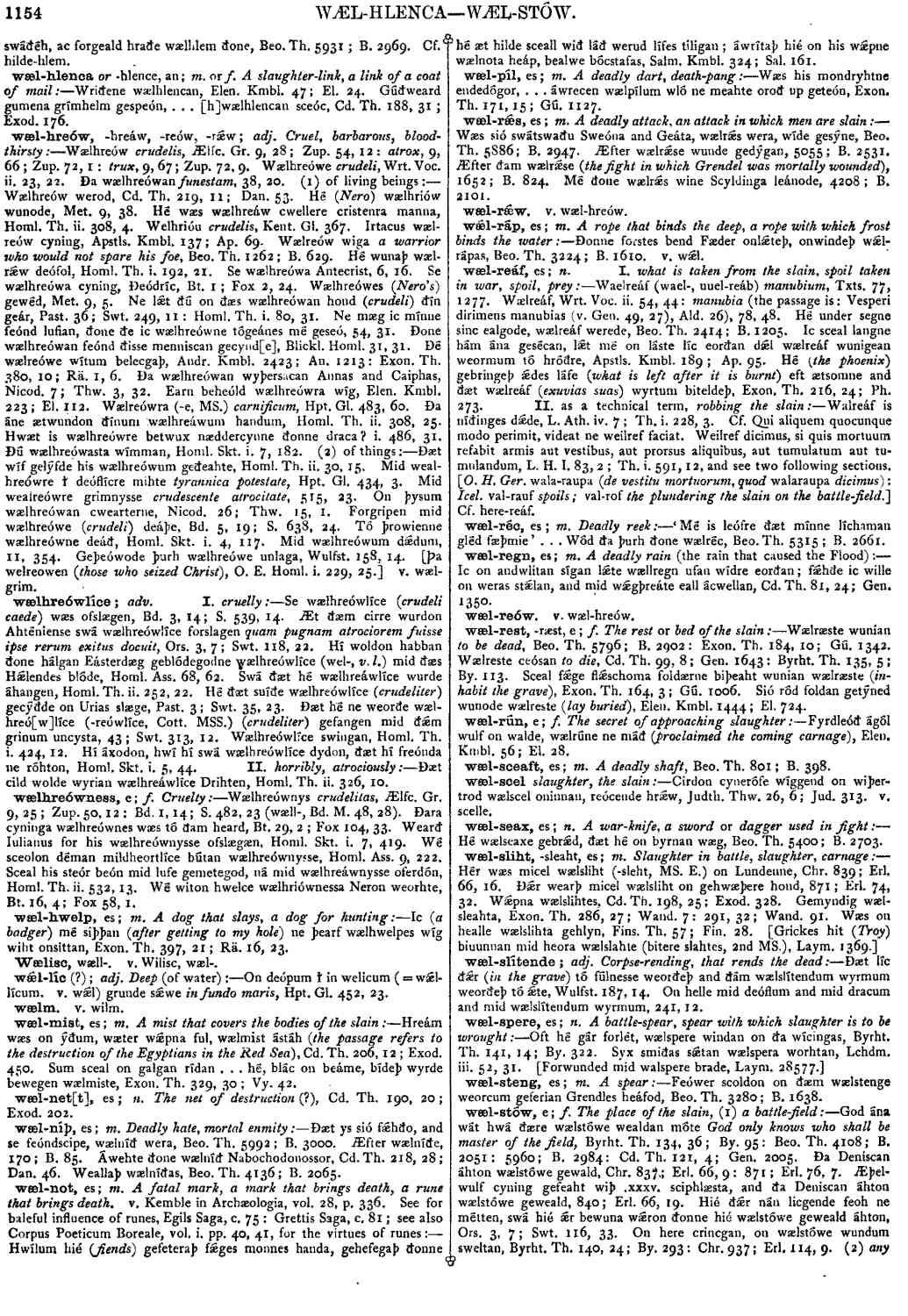wæl-stów
- noun [ feminine ]
-
God ána wát hwá ðære wælstówe wealdan móte
God only knows who shall be master of the field,
- Byrht. Th. 134, 36; By. 95: Beo. Th. 4108; B. 2051: 5960; B. 2984: Cd. Th. 121, 4; Gen. 2005.
-
Ða Deniscan áhton wælstówe gewald,
- Chr. 837; Erl. 66, 9: 871; Erl. 76, 7.
-
Æþelwulf cyning gefeaht wiþ .xxxv. sciphlæsta, and ða Deniscan áhton wælstówe geweald,
- 840; Erl. 66, 19.
-
Hié ðǽr nán licgende feoh ne métten, swá hié ǽr bewuna wǽron ðonne hié wælstówe geweald áhton,
- Ors. 3, 7; Swt. 116, 33.
-
On here crincgan, on wælstówe wundum sweltan,
- Byrht. Th. 140, 24; By. 293: Chr. 937; Erl. 114,
-
Him Loth gewát of byrig (
Sodom, about to be destroyed
) gangan, wælstówe fyrr,- Cd. Th. 156, 23; Gen. 2593.
Bosworth, Joseph. “wæl-stów.” In An Anglo-Saxon Dictionary Online, edited by Thomas Northcote Toller, Christ Sean, and Ondřej Tichy. Prague: Faculty of Arts, Charles University, 2014. https://bosworthtoller.com/34360.
Checked: 0